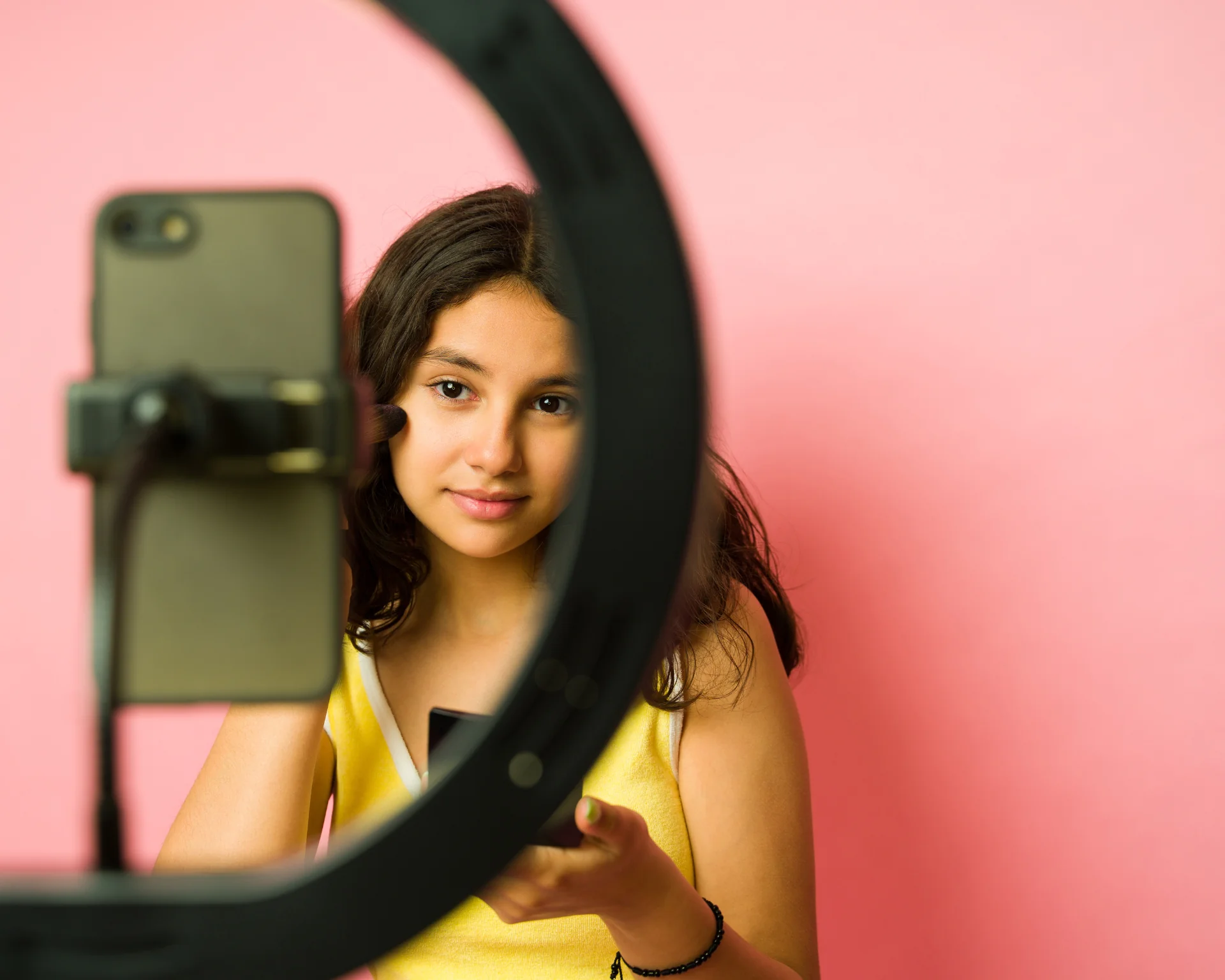Kidfluencing: Profits Over Protection
The more successful a family's kidfluencing venture, the more likely the child’s fundamental rights are being violated.

Read Time: 4 minutes
Published:
While many know Ruby Franke for her 2023 child abuse arrest, Hulu’s Devil in the Family: The Fall of Ruby Franke also highlights how the long-term exploitation of her children (under the guise of family content creation) was equally damaging. Throughout the docuseries, Ruby’s eldest children, Shari and Chad, revealed how filming initially felt exciting, but eventually, the growing audience and income brought overwhelming pressure and loss of privacy, resulting in immense mental stress. This is a disturbing reminder of the challenges that some kidfluencers face.
Kidfluencers are children at the center of typically parent-managed social media accounts, often earning income through sponsored content and ad revenue. Parents can build large enterprises from child-focused content. For instance, Ryan Kaji, who started YouTube at 3, earned over $10 million by age 6. Both of Ryan’s parents focus on filming his content full-time, which has since expanded into a global kids’ entertainment brand.
Despite the allure of overnight riches, the kidfluencer industry faces growing criticism. Fans see it as harmless family content with shared rewards, but critics say it’s risky child labor that only benefits parents. Alongside other concerns about the children’s well-being and autonomy, there are fears of exposure to inappropriate adult attention.
The more successful the kidfluencing venture was, the more likely that the child’s fundamental rights were violated.
Historically, child labor meant children working blue-collar jobs or as servants. The 1938 Fair Labor Standards Act established regulations to protect them from such exploitation. Unlike child actors, child influencers aren’t considered employees, so current labor laws don’t apply, leaving them without protection. Rather than relying on legal frameworks, using an ethical framework can help guide urgently needed regulatory reform.
To assess whether kidfluencing qualifies as exploitative child labor, Daniel R. Clark and Alisa B. Jno-Charles analyzed four of the biggest child-focused YouTube Channels: Ryan’s World, Vlad and Niki, Ninja Kidz, and The Bucket List Family. The videos children appeared in were analyzed to estimate how much time they spent working. External resources, such as interviews and online forums, were reviewed to understand how the kids were treated and if their rights were respected.
The researchers used the United Nations Convention on the Rights of the Child (UNCRC) as a guideline to evaluate how each child’s rights were upheld or violated. They then created a model of five fundamental at-risk rights of children in social media influencing. The framework outlined the fundamental rights as: the right to consent, freedom from economic exploitation, the right to privacy, freedom of expression, and freedom from harm.
The study classified kidfluencing as child labor and found it exploitative when children were marketed as branded products, unfairly compensated, engaged in age-inappropriate/hazardous work, or worked long hours. The more successful the kidfluencing venture was, the more likely that the child’s fundamental rights were violated. As months passed, the minutes of footage filmed increased, likely due to the popularity increase.
The five fundamental rights framework offers a promising path forward, one that can guide legislators nationwide in prioritizing children’s well-being in the digital economy.
The study found the rights to privacy and freedom of expression were the most vulnerable rights for kidfluencers. Children may not be aware of these risks as parents and platforms (e.g. YouTube, TikTok, etc.) may downplay the risks to children for financial gain, making public policy crucial in regulating kidfluencer content.
It’s not just parents and platforms; viewers can also contribute to violating child influencers’ rights. For example, the Bucket List Family shared a video of their then 9-year-old daughter “strutting on a treadmill in a bikini,” which elicited inappropriate comments from adult followers.
As public awareness of the risks associated with kidfluencing grows, some states have begun to respond with updated child labor laws. In October 2024, Shari Franke testified in support of a Utah child labor law, passed in March 2025. The law requires parents earning $150,000+ from child-focused content to set aside a portion of the earnings for their kids and allow those kids to request content editing or deletion at 18. The five fundamental rights framework offers a promising path forward, one that can guide legislators nationwide in prioritizing children’s well-being in the digital economy.



